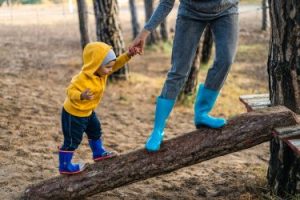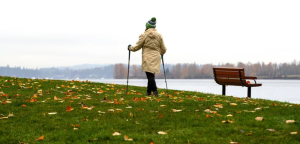Michelle Ma · UW News · April 16, 2020
Featuring Kathleen Wolf and Dr. Pooja Tandon, Nature and Health researchers
 As residents in Washington and much of the nation are confined to their homes and apartments under COVID-19 restrictions, many people are missing their usual “nature escapes”: that hike to a serene lake, a mountain bike trail through the woods, or even a favorite campground by a river where you can relax and recharge.
As residents in Washington and much of the nation are confined to their homes and apartments under COVID-19 restrictions, many people are missing their usual “nature escapes”: that hike to a serene lake, a mountain bike trail through the woods, or even a favorite campground by a river where you can relax and recharge.
As studies have shown — and personal experiences can attest — spending time in nature helps reduce anxiety, improve mental health and well-being, and bolster physical health. In light of stay-at-home orders, University of Washington researchers share that studies also show there is much to be gained from nature close to home, whether in a yard, on neighborhood walks or even indoors.
“Studies have proven that even the smallest bit of nature — a single tree, a small patch of flowers, a house plant — can generate health benefits,” said Kathleen Wolf, a UW research social scientist in the School of Environmental and Forest Sciences. “Look closely in your neighborhood, and the bit of nature you may have taken for granted up until now may become the focus of your attention and help you feel better.”
